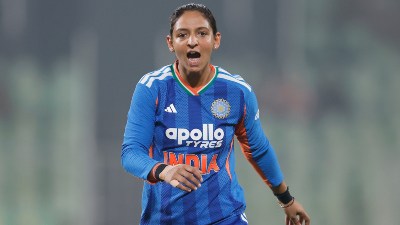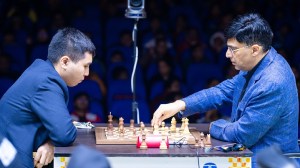Television drama
Some time ago, American TV audiences were treated to their very own TV marriage''. The programme, How to Marry a Multi-millionaire, whic...

Some time ago, American TV audiences were treated to their very own 8220;TV marriage8221;. The programme, How to Marry a Multi-millionaire, which notched one of the highest ratings of all time, had a successful American land development entrepreneur choose his 8220;bride8221; from a bevy of beauties paraded before him and marry her right there before the curious eyes of millions worldwide.
It8217;s another matter that the 8220;marriage8221; fell apart within a few days of that synthetic wedlock. The instant success of a programme of this kind reveals how under the powerful glare of television the division between real life and fantasy may seem almost illusory. For Indian television watchers, especially those hooked on India8217;s Most Wanted, the popular weekly TV show that reconstructed acts of crime, the tale of its anchor, Suhaib Ilyasi, may appear bizarre in the extreme. Almost like an extension of one of the crime stories he regularly cranked up for the idiot box.
The Ilyasi story, shorn of its sensationalism, is a fairly pedestrian one. Two high-strung people caught in the tensions of a difficult marriage. No big deal. But what lent that extra edge to a crumbling relationship was Ilyasi8217;s dizzying climb to media superstardom. Helped at first by his wife, Ilyasi apparently drifted away from her and got increasingly embroiled in dubious business deals and relationships.
Unfortunately for Ilyasi, his wife Anju resented this trajectory and spiritedly resisted it. The violent denouement to the saga came on January 10, when she was found dead with knife wounds in her Delhi home. The post-mortem report ruled that she had committed suicide, but Ilyasi still found himself in jail a few weeks later after Anju8217;s sister testified to his ill-treatment of his wife. Ilyasi, ever the media hero, converted even his brief appearance in court after his arrest into a personal statement.
He made it known before ever-present TV cameras that his arrest was a calculated attempt to undermine his popular show. It was a last-ditch attempt of a media star to reach out to TV audiences yet again in a manner reminiscent of the way he used to sign off each TV programme with the words, 8220;Together we can and we will make a difference8221;.
While speculation is rife over Ilyasi8217;s guilt or lack of it, the larger questions raised by this domestic drama remain unaddressed. Anju8217;s disempowerment within her marriage is similar to that of hundreds of talented, creative women trapped in tyrannical, loveless relationships, women who find their own existences stifled in the process.
There are also questions to be raised about the personal price people are prepared to pay for their professional success. What are the compromises they make in their bid to reach the stars? What does media stardom do to them as human beings? What does it do to their families? Unfortunately, very few people see the Ilyasi story for what it is: a tragedy that reflects all the contradictions of these topsy-turvy, media-driven times.
- 01
- 02
- 03
- 04
- 05































